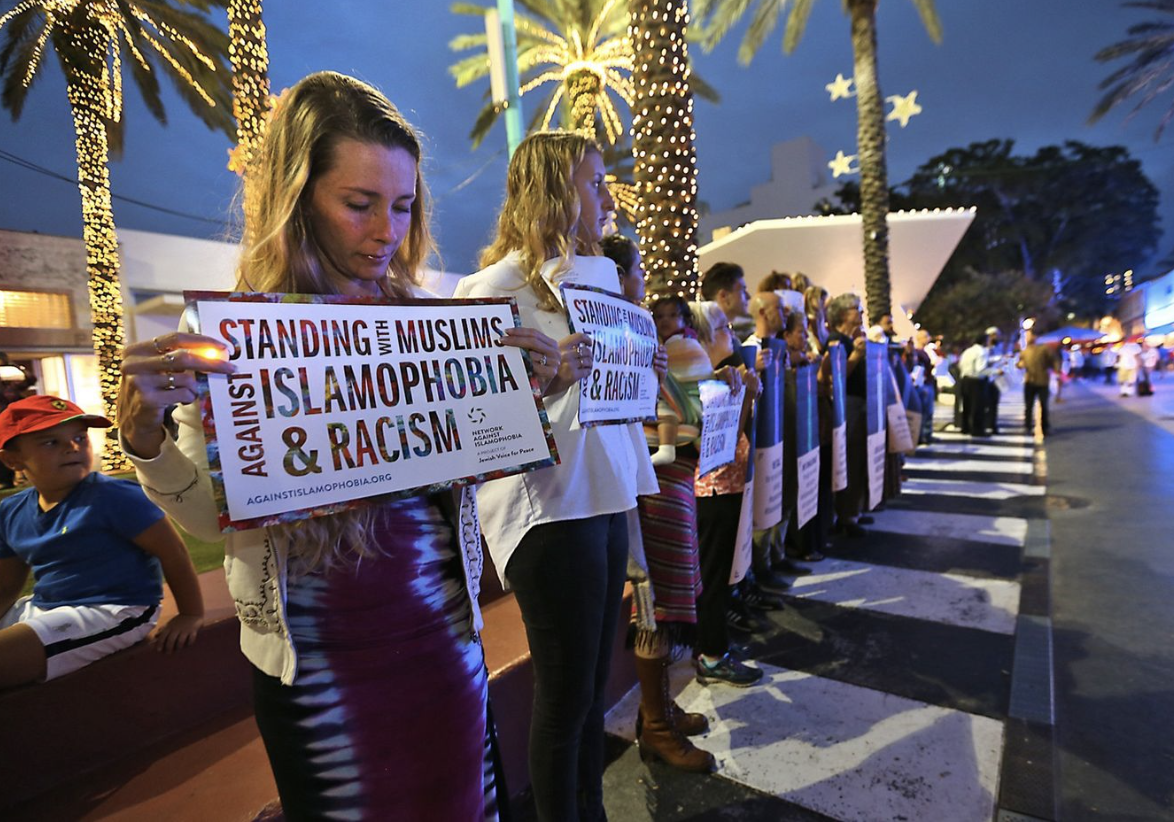Islamophobia is again the obsession of progressives and the media. “I know many of you in the Muslim-American community, the Arab-American community, the Palestinian-American community, and so many others, are outraged, saying to yourself, here we go again with Islamophobia and distrust we saw after 9/11,” President Biden said in his Oct. 19 prime-time address. The Council on American-Islamic Relations says it has received complaints from Muslims facing “a hostile work environment” caused by employers’ “Islamophobic and anti-Palestinian messaging.”
Racism exists. So do sexism, alcoholism and many other bad isms. People can be cruel to each other—and to themselves—in classifiable ways. We have flaws rooted in humanity’s fallen nature that we should all try to overcome. But the phobias that politicians and journalists bandy about are phony. They exist only to stigmatize ordinary political thought and intimidate people into silence.
Begin at the beginning: Fear and hatred aren’t the same. Both are powerful emotions. Some relationship exists between them. But they aren’t synonyms. Where they occur together, fear generally comes first. It’s a natural response to danger. Fear comes from the gut. Its purpose is to activate the instinct for self-protection. When someone tells you not to be afraid even though every cell in your body is saying you should be, chances are good that person has an agenda.
We often hate the things we’re afraid of precisely because of how fear makes us feel and behave. Someone suffering from claustrophobia might have an emotional breakdown at the mere thought of being confined in a small room. He may say he hates it, but what he really means is he’s terrified. The fear and the hatred aren’t one.
Modern progressives relish the opportunity to pathologize conservative views, diagnosing those who hold them as sick or crazy. When used effectively, a term like “Islamophobia” freezes its target, forcing a denial of prejudice. A denial that is awkward or unconvincing can be a debate-ender.
We can tell that this is a partisan phenomenon because the phobia diagnoses only run one way. Liberals claim to be afraid of rampant gun violence, but they don’t describe themselves as suffering from “gunphobia.” The other guys are crazy, not us.
No one is afraid of Islam per se, which is what the word “Islamophobia” implies. I have met many Christians, Jews, Hindus, Buddhists and atheists who are intrigued by Islam, curious about its theology and teachings. I have never met anyone who is afraid of it.
But many people fear becoming the victims of Islamic terrorism. They are afraid of being killed in their homes or their offices, on the street or at the theater, by wild-eyed jihadists hopped up on synthetic amphetamines. They are afraid of car bombs and subway stabbings. They are afraid of guys shouting “Allahu Akbar!” while filming themselves slaughtering innocent people.
I know a lot of people who are angry that this happened last month. They have noticed that similar atrocities have been happening with frequency for decades. They hate that it never seems to stop.
It’s rational to be afraid of Islamic terror. It’s understandable to be angry about the World Trade Center, Bali, Madrid, London, Paris, the Boston Marathon, San Bernardino, Charlie Hebdo, the Manchester Arena, the Brussels Metro, the Orlando nightclub, Salman Rushdie—the list goes on.
It isn’t wrong to hate the people who live streamed the slaughter of entire families on Oct. 7. It isn’t a phobia to abhor senseless death delivered in the name of God. It may even be laudable.
To see this article and to subscribe to others like it, please choose to read more.
 Listen Online
Listen Online Watch Online
Watch Online Find a Station in Your Area
Find a Station in Your Area








 Listen Now
Listen Now Watch Online
Watch Online
